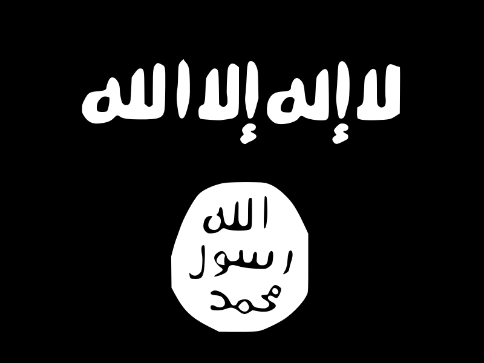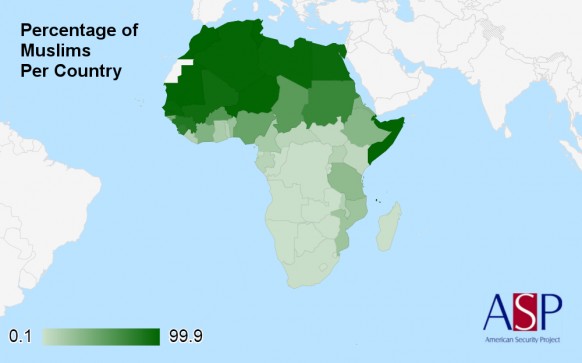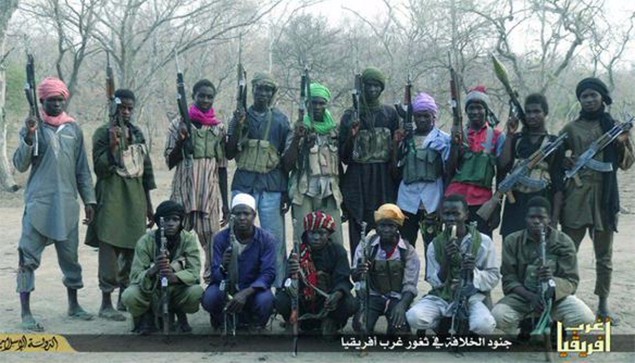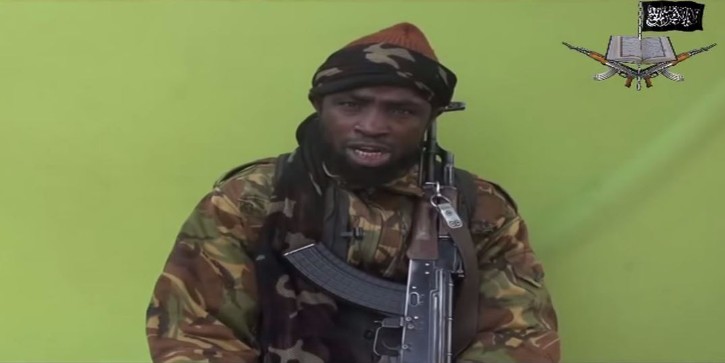 The Flag of the Islamic State (IS), Recently Adopted by Boko Haram
The Flag of the Islamic State (IS), Recently Adopted by Boko Haram
What’s in a Name?: Boko Haram renames itself the Islamic State’s West Africa Province (ISWAP)
The Islamic State’s West Africa Province (ISWAP)
In early March, Boko Haram, the Islamist militant group based in northeastern Nigeria, declared its allegiance to the Islamic State (IS), also known as ISIS or Daesh. More recently, a few weeks ago, Boko Haram consolidated this relationship by renaming itself the Islamic State’s West Africa Province (ISWAP).
The Islamic State (IS) has readily accepted the declaration and has offered it as evidence that its campaign to establish a caliphate throughout the historical lands of Islam, including North Africa and the Sahel, is succeeding. In the wake of the announcement, many commentators are attempting to determine whether IS could improve Boko Haram’s military efforts, recruitment, and organizational structure, particularly in the wake of its significant losses at the hands of a military coalition of West-African states, and why Boko Haram has made this recent move.
Map of the Muslim-Majority Regions of Africa (ASP)
Boko Haram’s recent decision to rename itself is part of a larger pattern in which various militants, terrorists, and criminals throughout the world are claiming to be members of the Islamic State (IS). For example, various armed gangs in Libya’s ongoing civil war have claimed that they are members of IS. More recently, some IS supporters have claimed that the organization is active in the United States with over 70 militants in 15 states.
Boko Haram Fighters in Recent IS Propaganda
The Islamic State (IS) has incorporated Boko Haram’s exploits into its sophisticated propaganda apparatus and has displayed various images of the Nigerian group’s members on IS-associated social media accounts. However, according to the existing evidence, the extent to which Boko Haram is receiving material support from IS or members of Boko Haram are participating in IS’s propaganda efforts appears to be fairly limited.
What’s in a Name?
Prior to the declaration of allegiance and recent change of name, Boko Haram’s main professed goal was to establish an Islamic state in northern Nigeria whose sole legal foundation would be a violent, fundamentalist interpretation of Islamic law, an organizational structure similar to that which the Islamic State of Iraq and al-Sham (ISIS), the precursor to the Islamic State (IS), originally employed in Iraq and Syria before its declaration of a global caliphate. Therefore, Boko Haram’s recent move away from a conception of the organization as a regional Islamic state to a part of IS’s global caliphate appears odd. However, in the past, Boko Haram has been willing to change its professed ideology significantly.
Specifically, Boko Haram has had a long history of changing its name in line with its shifting ideology, objectives, and material resources. Even though the group is most popularly identified as Boko Haram, ‘Western Education is Forbidden,’ its real name is actually Jama’atu Ahlis Sunna Lidda’awati wal-Jihad, ‘People Committed to the Propagation of the Prophet’s Teachings and Jihad.’ The group has also been known as Ahlusunna wal’ Jamma Hijra, the Yusufiyya, and now, the Islamic State’s West Africa Province (ISWAP).
Abubakar Shekau, Leader of Boko Haram and ‘IS Emir of West Africa’
Given this history, it is probably that Boko Haram is hoping to secure material and ideological support from the Islamic State (IS) and attempting to stave off the group’s accelerating decline as a coalition of West-African states, with support from the African Union (AU), has driven it out from most of the territory that it formerly occupied in northeastern Nigeria at the beginning of 2015.
What is to be done?
The only way to ensure that Boko Haram is defeated is by encouraging the Nigerian government to increase anti-corruption measures, institute better policing, and create a more inclusionary state, the lack of which was the major factor that led to the formation and rapid rise of Boko Haram and, if unchanged, will sustain it for a long time to come.
More generally, the United States should pay attention to the links that the Islamic State (IS) is establishing with other individuals and organizations, but must be aware that, currently, rather than increasing the group’s military and operational capacity, Boko Haram’s allegiance is mostly a tool in IS’s massive propaganda machine. However, with a few weeks having passed since the announcement and the vast majority of media outlets and governments still referring to ‘ISWAP’ as Boko Haram, the change is currently of questionable value for IS’s optics.









Better governance of Nigerian state, better educational system, also strengthen ECOWAS institutions against religion based on radicalization. Build one radio-station to fighting radicalization – arrange good program.
Increase standard of population. Nigeria is rich country.